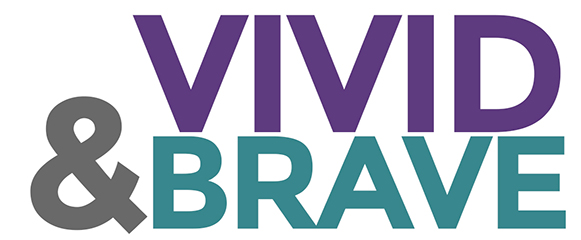When I think back to my son’s infancy, I remember two things most vividly:
His crying, and my own sense of desperation.
I’ve long struggled with how much of The Button’s story to tell on my blog – it’s not MY story, though parts of it are. It’s his story. His life. As his mother, our stories are inextricably woven together, but what can I say? How much? What words? How do I tell you about raising a special needs child? About the heartache and the joy? The grief and the wonder? How will I be able to adequately express all the things this life has given me, being his mother.
From the moment he was born, The Button was what is often described as a “high needs” baby. He cried a lot – up to seven hours a day for seven months of his life. It seemed like everything was an attack on his senses – light, clothing, sound. I can look at pictures and remember that he smiled in a way that looked like his face might crack. That he laughed hysterically at things like Finding Nemo. But without those visual cues, I find a lot of those early days exist in a haze for me, one filled with my own sense of isolation, fear, desperation and shame. I blamed myself for this baby who screamed and held his body so rigidly in my arms. I wondered what I’d done wrong. Later I would be diagnosed with post partum depression. I was plagued with visions of him being hurt, though rarely by me. I thought that was normal – didn’t all mothers worry about their babies getting hurt?
I remember at some point, during those early sleepless, excruciating days, that The Button’s father confided in me that he’d had a moment of thinking to himself that if he just pinched him, then he would know what was wrong, and he could fix it. I could barely contain myself because I’d had the -exact- same thought. And that thought had felt so dark, so shameful, so wrong, that I’d bottled it up inside and relegated it to the deepest part of my head where I kept those kind of secrets. No parent would ever consider hurting their child. No good parent.
Why am I telling you this now? Well, yesterday another news story was published about a woman with a special needs child who had thrown her son from a bridge. She was under immense amounts of stress – a high needs child, a sick husband, the loss of her father. She felt like she had no choices left. And surely, mental illness was at play, because at some point, it has to be, to get to that place. But I remember that feeling. That dark, deep, endless cavern of desperation and hopelessness. I remember the nights I truly wasn’t sure the sun was coming back up. Medication cleared the haze, but now I could see, in stark contrast of daylight, the things about my son that were different. And then, when I finally had the capacity to speak up – people brushed me off. My doctor said he was just smart, and a boy. Others made jokes about how smart and hyperactive he was. One other person even suggested I wanted there to be something wrong with him.
The Button was diagnosed at three and a half years old, and I remember it brought with it a sense of relief, but also one of deep grief. In the blink of an eye, in the duration of one hour long session with the psychologist, every hope and dream I’d ever had for my son felt torn away from me. Suddenly, I was left to wonder what his future would look like, and to let go of the expectations I’d always carried. But for us, here in resource rich Alberta, diagnosis also meant real, tangible help. Therapies, aides, interventions, funding. And the added relief of knowing that I hadn’t been wrong – my instincts had not failed me this time, my brain had not confused regular caution with immediate life threatening danger. I had been right.
For those women and parents in underserved areas, there is little to no relief. There are no therapies, aides, interventions or funding. There is little to no support. The isolation that comes with having a special needs child is immense – overwhelmed parents retreat from the glaring public eye which so often judges their “bad” children, their meltdowns, their stims, their sounds. This isolation is feeding a beast that leads to women who start to feel like their choices are running out. What happens when even your community has turned on you? When your child is kicked out of school? When your money runs out? When your spouse leaves?
I’m telling you this today because the conversation has to change. We can’t condemn parents who are driven to the point of desperation, we can’t vilify them. They are not evil. They are the most human among us. Their burdens became too heavy and the most heartwrenching, terrifying thing became a viable way to find relief. To find peace. Many people would retort that the solution is to kill yourself then, instead of your child. But then you leave the most vulnerable, dependent person in your world without you. The strange balance here is hard to explain. To kill yourself leaves behind a child with no guarantee of being cared for – a child shuffled into another overburdened system, a child who might not be loved wherever they land. To kill them removes their suffering, and perhaps yours. Perhaps not. A parent who has reached this point is no longer thinking in logical ways. They’re living in extremes – the only way out, is out. Suffering sits at both ends of the scale, but at one end, the suffering is interminable, and at the other, it is finally relieved.
Empathy can be hard to find, I know. It’s hard to feel for someone when you can’t ever imagine deciding to harm your child. The key to empathy for these parents is to remember that they didn’t decide to harm their child, they fully believed they were helping them. The key to empathy is realizing that you can’t ever imagine deciding to harm your child, maybe because you can’t actually ever imagine feeling nearly as lost, alone, shamed, scared and desperate as they did. I can imagine it, because I lived it. And so I mourn both for a child who was lost and for a parent who couldn’t find any other way to ease their pain.
Instead of vilifying a parent who kills their child in their moment of sheer desperation, we must vilify a system that is not helping – that forces parents to become adversaries, that forces them to have to fight for every last drop of help they can squeeze out of a system groaning under its own weight. We must vilify those in office who slash and burn funding for special needs children and their families. We must vilify those who exclude and alienate children and families who are different, who are strange. We must vilify a society that suggests in good conscience a parent institutionalize their child if they can’t “handle” them.
And we must create a safe space to admit those dark feelings we sometimes have. We must create a community that allows a parent to acknowledge that sometimes, isolation, fear, and shame, paired with an exhausted body, a sick or disordered brain, can create little voices that say things you would never think. That means that when someone tells us something ugly, something painful, something shameful, we cannot gasp in horror, or condemn them. Instead, we need to be ready to say “I’ve felt that way, too and it scared me. You must be so scared right now.” We need to be ready to offer more tangible, actual help to parents who are struggling. We need to stop sweeping them and their inconvenient children under the rug. And even more so, we need to ensure that the system supports special needs children and their families into adulthood. They don’t turn 18 and become magically cured.
The Button will soon be 9. He is a thriving, brilliant fifth grader. He is provided with a wealth of resources to help him succeed, and he is doing it with flying colours. But there are still days where we struggle. And those days are hard. Those days I curl up in bed at the end of the day and cry. Those days I curse autism as loudly as I can. Those days I look at my son and feel that rush of desperate uncertainty – how will I help him? How will I make sure he lives as full a life as he deserves? What dragons will I have to slay? Who will I need to convince? My heartrate rises, my palms gets sweaty, a lump forms in my throat. Imagine living with that every minute of every day. Imagine when the bad outweighs the good, for far too many days in a row.
Imagine being that mom who finally reaches her breaking point, and does something you’d never do.
Be light for her, instead of casting her into darkness. She needs you to.
Photo by Gabriel Garcia Marengo via Creative Commons
Stephanie Ostermann
I’m a communicator. That’s a PC way of saying I like to talk, but I also spend a lot of my time listening, and over the years, I’ve developed a sense for subtext – how one or two words can change your entire message, what people are really trying to say and how to weave the varied layers of your story into one cohesive brand message that your clients fall in love with.
When I'm not acting as editor in chief for Vivid & Brave, you can find me geeking out over words here.
Latest posts by Stephanie Ostermann (see all)
- Inventing Insecurities | No, I Don’t “Need” Eye Cream - February 24, 2017
- You Don’t Have to Be Friends With Your Ex (Or His New Wife) - November 23, 2016
- Grief & Landlines - September 20, 2016





Beautifully, and powerfully, written Stephanie Ostermann.
Very touching